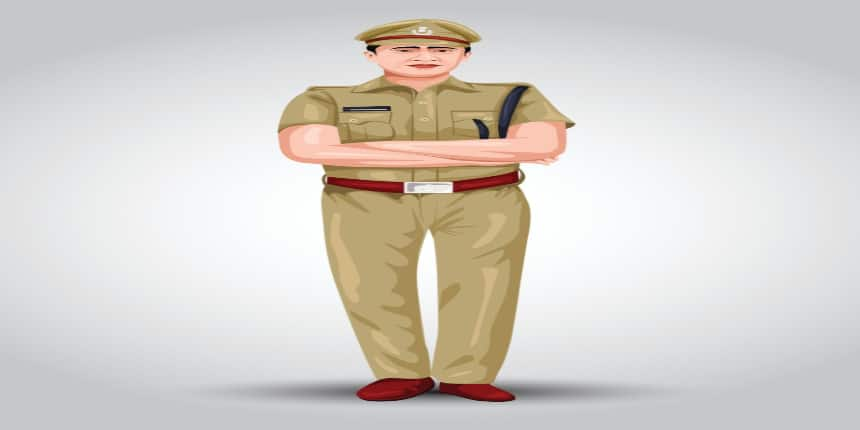DIG Full Form
What is the full form of DIG?
The full form of DIG is Deputy Inspector General of Police. Senior to the Senior Superintendent of Police (SSP) or Deputy Commissioner of Police, it is a three-star rank in the Indian Police Service (DCP). The employee in this job is under the supervision of the Inspector General of Police (IG) or Joint Commissioner of Police. From this office, an IPS officer with three stars on his uniform performs duties.
- What is the full form of DIG?
- Who is a DIG?
- Roles of a DIG
- Eligibility Criteria for DIG
- How to Become a DIG?
- Salary of DIG
- Benefits for DIG
- Functions of DIG

Who is a DIG?
DIG (Deputy Inspector General) is the post under the Inspector General of the police in the Indian police. The Deputy Inspector General holds the 4th highest rank in the Police department. The IPS officials who hold this position have successfully held the positions of Senior Superintendent of Police or Deputy Commissioner of Police. On their dark blue uniforms, they have collar-mounted Gorget patches with a white embroidered outline. And the DIG has the power to govern the Superintendent of Police, Deputy Commissioner of Police, Additional Superintendent of Police, Assistant Superintendent of Police Inspector, Sub-inspector, and more.
Roles of a DIG
The Deputy Inspector General of Police has various roles and their duties differ between nations and states. Some of them are:
They organise, examine, and review the activities carried out by the police department.
They must ensure that the various police departments work well together.
They assist the sub-inspectors with everything from training to evaluation.
Allotting constables their duties and transfer officials who are below them.
To pass orders on getting special reports from higher officials
Their investigative work includes stopping, spotting, and looking into crime, corruption, traffic control, counterterrorism, VIP protection, maintaining public order, stopping drug trafficking and smuggling, border enforcement, and directing intelligence agencies.
Eligibility Criteria for DIG
There are two major eligibility criteria for a candidate to become a DIG officer, they are:
Nationality: Indian citizens are given preference, however individuals from Nepal, Bhutan, or Tibet who have made permanent abodes in India are also welcome to apply.
Educational Qualification: The applicant must pass the UPSC exam and possess a bachelor's degree from an accredited university.
How to Become a DIG?
Joining the police force is the first step in becoming a deputy inspector general of police. Now, one must pass the National Civil Services Exam, administered by the Union Public Service Commission (UPSC), in order to become a police officer and join the police force.
The police department provides training to the applicant once they pass the civil service test (UPSC). Then, he or she is appointed an IPS officer.
Now, the officer is appointed as an Assistant Commissioner of Police (ACP) or Assistant Superintendent of Police (ASP) based on the knowledge, talent, skills, and performance, and considering different factors the officer is promoted to Superintendent of Police (SP) then Senior Superintendent of Police (SSP), and later promoted to become Deputy Inspector General of Police (DIG).
Salary of DIG
The Deputy Inspector General of Police (DIG) is taxed based on the Senior Time Scale of the PayScale under the IPS Pay Rules 2016 disseminated in the Government Gazette (pay level 11). According to the Junior time scale, the DIG’s base payment varies from INR 131,000 to 216,000 per month.
Benefits for DIG
An individual holding the post of Deputy Inspector General has the following benefits:
They have an official vehicle, driver, free accommodation, no-cost electricity, lifetime pension, government-aided medical treatments, free telephone connection, security guards, paid holidays, retirement perks, and job security.
They are expected to receive a salary of about 131,000 to 216,000 rupees per month.
Along with that they also have paid study leaves and lifetime allowances.
Functions of DIG
The Deputy Inspector General of Police aids the Inspector General of Police in managing and overseeing the police force in his area. He is given specific authority to uphold efficiency and order in the local police force. He is given specific authority to uphold efficiency and order in the local police force and reports the outcome to the inspector General of the Police.
Other Related Full forms -
Frequently Asked Questions (FAQs)
The President appoints Deputy Inspector-General (DIG).
The Director General of Police is the highest post in the police.
Deputy Inspector General's income in India ranges between 131,000 to 216,000 rupees per month.
The police constable has the lowest office among the police forces in the country, followed by the senior constable.
The Director-General of Police (DGP), who is in charge of the state's entire police force, holds the most important position in the police administration. While the DIG, or Deputy Inspector General of Police, is the second-ranking police officer.
